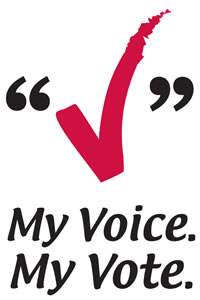from illinoisreview
Yesterday's Tribune headline blared "Illinois' pension nightmare." Here are some excerpts, with thoughts attached.
Illinois, with an estimated $45.8 billion pension shortfall, has among the worst funding records in the country. From Connecticut to Oklahoma, pension obligations are threatening to overwhelm budgets, pinching states' ability to pay for pressing priorities such as education, transportation and health care.
From a political perspective, this offers the best opportunity in a generation to create real political reform. The culture has always been able to digest a little corruption, but the politicians here have a) created a huge patronage army of government workers (yes Virgina, teachers are government workers), and b) showered them with unsustainable benefits, which sadly, are Constitutionally protected once vested.
What few people understand is that there isn't enough future tax revenue to pay off these promises. Taxation will only yield economic decline that destroys the ability to pay the promises. Reform is no longer an "option," it's now a force of nature.
The parsite no longer lives in harmony with it's host.
Then came the 2001 recession and stock market collapse, which reduced pension funds' value and triggered a budget crisis during Gov. George Ryan's administration. At the same time, a costly early-retirement program increased the pension obligations.
The "recession" had barely any impact. Stock values are back above where they were in 2001, and this should be reflected in the article. The fact is that our politicians, bought and paid for by the patronage army they created, showered unsustainable benefits on their funders.
The mediocre Tribune, strategically running this article 1-2 years too late, (but clearly designed to benefit Topinka) is as responsible for the shortfall as any entity in the state. They probably endorsed 80-90% of the politicians that voted for this obscene largess, all while promoting the myth that "more money = better education."
At an HB 750 "Dog and Pony" show, I pointed out to the crowd that IL spending on education increased 153% from 1985 to 2003, while enrollment had only increased 13.1%. The Honorable John Frichey's response was refreshingly honest. He said, "Yeah, but that all went to pensions.
Though not covered in the article, Illinois Review readers should know 2 things about the recent "roll back" in the piggish "Early Retirment Option." First, your legislator's paymasters (teacher's unions, BIg Ed) are busy working to restore the full obscenity through large exceptions. Second, the obscenity of the ERO can and will continue at the local level, provided the district has the money.
Did you ever wonder why so many districts are crying poor? They are loading up for providing locally funded EROs. Go ahead and FOIA your latest teacher's contract. Look at the goodies. If you don't have the time, at least have the decency to vote down all referenda.
But unless it's solved, Msall and others warn, taxpayers will be the losers. The state constitution requires that retirement benefits be paid at the level they were promised. While lawmakers can decide to cut school funding, they can't get out from under the pension obligations.
"Pension funding will trump all other contributions over time," Msall said. "It should be at the front of anybody's mind who cares about education, about transportation, because if you don't get the system fixed you're not going to have any money for those in the future."Nothing would be more deliciously ironic than watching 'real' education spending being cut to fund the piggishness of the generation that came before it. Whether the vehicle is a
"fake" tax swap, another give away to retired government workers, or an argument over funding an increasingly failing education system, the ground may well shift under Illinois political status quo . . .







